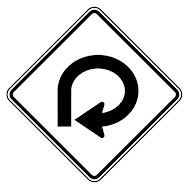Let's end the archaic management of time
Every once in a while, twice a year to be exact, I am forced to go through the house and change the time on all the clocks, and other appliances that have clocks. The atomic clock in the kitchen doesn't need to be changed, my cell phone is ok, and computers auto-adjust, but I still have to make the rounds for the other devices. When we are an hour early or late on our first trip after such time-changing events, I also realize I need to change the clock in the car. Growing up in Indiana, this wasn't as much of a problem, as we didn't change our clocks. The only impact was that TV shows started an hour early (or late) half the year.
Fellow Jolt judge, David Dossot, reminded me of "beat time" from the late 90's. It never caught on, but what a concept? Could one time zone for the entire planet be possible?
I have heard all sorts of explanations as to why we have to change our clocks, but that is just half of the problem. The other half is the concept of time zones. We have four time zones in the continental United States. Russia has many more than that. Any gues as to how many time zones in China? Ten? Twelve? How about one? That's right - ONE time zone. I remember how great it was to know that if I was taking a train from Xi'an to Guilin, I could immediately know how many hours it would take. I didn't have to adjust for any of this time zone nonsense.
Now I've heard from many people who think that it is a good idea, and the reason in every single case is the same - "I want to know that sunrise is around 5 to 6 am." In other words, everyone wants to have their own 6:00am. They think it would be too strange to get up at 2:00pm while someone else, at the same time, is getting up at 6:00am. We have become so mentally attached to a number on a clock being associated with the relative position of the sun in the sky. Sure, you can throw biorhythms in there as well, but that seems to be of lesser importance. Let's not even bother to bring up the fact that this crazy sun of ours keeps changing the time that it appears in the morning, and seems to have absolutely no respect for our concepts of tracking time.
Imagine, if you will, a world where you could schedule a meeting with someone for 18:30 (let's just assume 24 hour time while we're at it) and neither one of you have to do a calculation to figure out what time zone is for which person. Imagine that you can take a flight from Chicago to Hong Kong and not have to deal with local times to figure out how long the flight is.
For all the reasons to hang-on to this outdated imperialist dogma of time zones and savings time, there are far more reasons to let it go and embrace one time zone for all. Some day... some day...



Good post, Jon.
ReplyDeleteI have long favored everyone on the planet using UT (Universal Time, a.k.a. GMT or Greenwich Mean Time). Many generations of navigators have used it successfully, Internet servers use it, and it's so simple. No more time zones and no more adjustment to/from DST, and yes let's make it a 24 hour clock. Some people will complain about it for a while, but within a generation or two it will become second nature. Having everyone everywhere on the same unambiguous time may help to unify people around the planet and help make war and other kinds of strife less likely.
I also favor our adopting a 13 month / 28 day calendar. Each month has exactly 28 days and would always begin on a Sunday all year 'round.
Since this totals only 364 days per year we'll also need an extra Earth Day each year to bring the total to 365 days plus an extra Leap Day every 4 years (following the current rules for Feb 29). Neither Earth Day nor Leap Day would belong to any day of the week nor to any month, and they would never "count" as calendar days or business days and so could be ignored in date calculations. They're just extra days inserted to re-synchronize the calendar with the solar year. We could observe them as international holidays. Earth Day could always occur between Month 6 and Month 7 and Leap Day right after Month 13 every 4th yea, adjusted as needed.
Some people have proposed naming the new months after the old ones and inserting the new 13th month between June and July. But what's wrong with just calling them Moon One, Moon Two, Moon Three, ... and so on? Or LunaOne, LunaTwo, LunaThree ... ? The UN could form an international committee to decide their names and other details.